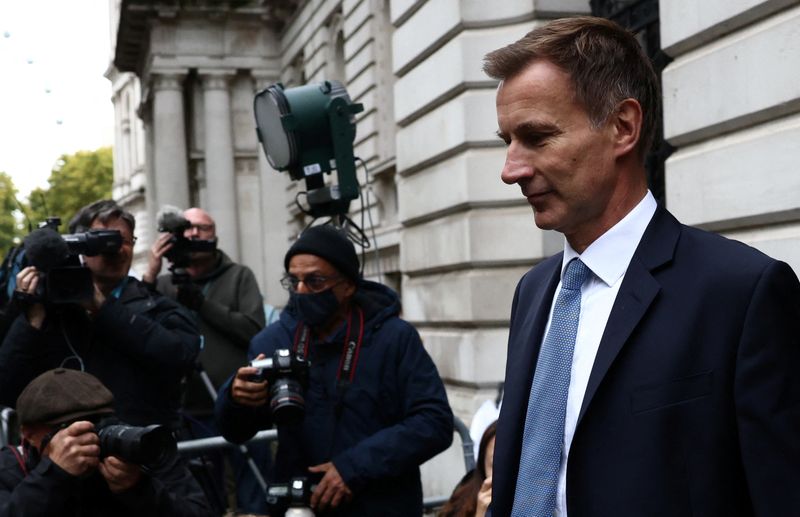By Geoffrey Smith
Investing.com -- U.K. government bonds extended their rally in London trading on Monday after the government's new finance chief scrapped almost all of Prime Minister Liz Truss's ill-fated tax cuts and also flagged a quicker end to Truss's promised energy subsidies.
By 07:45 ET (11:45 GMT), the yield on the benchmark 10-Year government bond, or Gilt, was down a whopping 36 basis points at 3.96%, just off its intraday low of 3.92%, as bond investors moved to dismantle the risk premium they had built into Gilts in alarm at Truss's original plans. The 30-Year yield tumbled 40 basis points to 4.38%, while the 2-Year yield fell 38 basis points to 3.50%.
The pound also recovered further, rising over 1% against the dollar and 0.9% against the euro on relief that the government will no longer pursue a course that was almost universally condemned as unsustainable - even within the ranks of the ruling Conservative Party.
Jeremy Hunt, who took over from Kwasi Kwarteng on Friday as Chancellor of the Exchequer, told reporters in Downing Street that the basic rate of income tax will remain at 20% instead of being cut to 19%, while Kwarteng's plans to cut taxes on dividends, freeze duty on cigarettes and alcohol, and loosen regulations relating to self-employed contractors will also be scrapped.
Just as importantly, Hunt said that Truss's previous promise to cap energy bills for most households for two years would be reviewed instead already in April 2023, amid fears that it - like the planned tax cuts - could not ultimately be paid for.
However, one key element of the original Truss/Kwarteng package remained: Hunt indicated that he won't reinstate the increase in national insurance contributions that Kwarteng had announced in September. The increase had been intended to create ring-fenced funding for social care. The spending commitment, however, remains in force.
Tweaks made by Kwarteng to stamp duty, the transaction tax on house purchases, will also remain.
